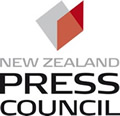The Spinoff last week asked me to consider the political highs and lows of 2016. So I did that and saw there first package come out over the weekend. So here are my thoughts on all that
Champs: Who would you rank as the best performing individuals in politics for 2016?
1. John Key, for perfectly executing the coup against himself, and Bill English, the little engine who finally did.
2. Winston Peters, who starts an election year with stronger polls than ever
3. Michael Wood, for reminding everyone that all politics is local


















